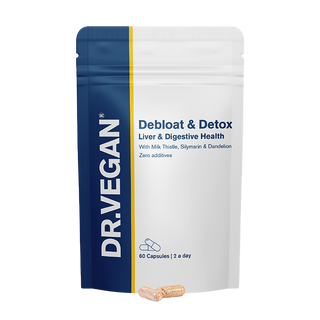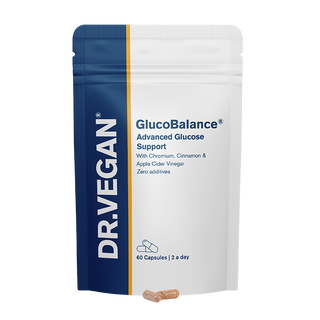Is oat milk good for diabetes?

By: Shona Wilkinson
Oat milk has become a rising star in milk alternatives as dietary preferences evolve. But what's the real scoop on this trendy drink? We investigate whether oat milk can cause a rapid spike in blood sugar levels, its relationship with diabetes and its health benefits.
What is oat milk and how is it made?
Oat milk is a dairy-free alternative made from whole oat grains. To produce this creamy elixir, oats are soaked in water, blended and then strained to remove any solids. The result is a smooth, slightly sweet liquid that garnered immense popularity for its versatility.
Understand your diet. Create your free Diet Profile.
Oat milk vs. regular milk
Compared to cow's milk, oat milk is naturally free from lactose and cholesterol, addressing dietary concerns for many. When considering calcium content, some oat milk brands fortify their products, ensuring adequate calcium intake without compromising dietary choices.
Are there nutritional benefits of oat milk?
Oat milk boasts a wealth of benefits. It's often fortified with vitamins and minerals, including calcium, which addresses the calcium-related concern circulating among consumers. Fortified plant-drinks like oat milk, can help assist in the production and regulation melatonin, helping you to sleep well. It's also rich in fibre, which can give a sense of fullness and support digestive health.
Bone & Muscle Support

Oat milk's nutritional profile positions it as a health-conscious choice. However, to improve taste and texture, some commercial brands of oat milk can contain added sugars and flavourings that detract from their natural benefits. Opting for unsweetened or minimally sweetened versions can help you avoid excessive sugar intake.
Tip: Ensure you look out for plant-sweeteners, such as stevia, stevia derivatives and xylitol, which are up to 350x sweeter than sugar and can have just as serious health consequences as sugar, as highlighted by the WHO.
Oat milk's impact on blood sugar levels
Oat milk is generally considered to have a moderate to high glycemic index (GI) due to its carbohydrate content. While some studies indicate that oat milk has a gentler impact on blood sugar levels than cow's milk, individual responses vary. Oat milk's potential to cause a spike in blood sugar levels is often lower than other sweetened plant-based alternatives, making it a diabetes-friendly choice.
The diabetes connection and insulin
For individuals with diabetes, oat milk is a favourable option as it contains soluble fibre. This can aid in stabilising blood sugar levels, helping to avoid sudden spikes and manage blood sugar levels.
Reactive hypoglycaemia
For reactive hypoglycaemia, oat milk's potential to cause a blood sugar crash after an initial rise is minimal, thanks to its fibre content and gradual glucose release.
You may be interesting in learning more about the 'Signs of high and low blood sugar' and the 'What is insulin resistance?'.
Can oat milk reduce cholesterol levels?
Oats contain a fibre called 'beta-glucans' which can help to improve healthy cholesterol. Studies have shown oat milk to be effective at lowering LDL cholesterol. Additionally, some studies have shows that consistently consuming oat milk for 5 weeks can lower serum cholesterol and LDL cholesterol in men with moderate hypercholesterolemia.
Can oat milk cause bloating?
Oats are a superfood for the gut. But, while oat milk's fibre content can promote healthy digestion, some individuals may experience bloating, especially if they're not accustomed to high-fibre foods.
You may also be interested in 'Common reasons you might be bloated' and '10 practical tips to reduce bloating'.
Debloat & Detox

Is oat milk good or bad for you?
So, is oat milk bad for you? Not inherently, but it's essential to read labels and choose wisely. Oat milk stands out as a versatile and potentially beneficial option in the world of milk alternatives. As with any dietary choice, moderation and individual tolerance are essential. By understanding its effects on blood sugar levels, health benefits and how it compares to other options, you can make an informed decision that aligns with your dietary goals.
You may be interested in reading our expert nutritionist's 'Debunking the Biggest Food Myths'.
Choosing the best oat milk
The best oat milk options contain minimal ingredients, avoid added sugars and provide adequate fortification. Seek out reputable brands that prioritise quality and transparency.

Brand A: A whopping 3.5 grams of simple sugar per 100 ml puts this brand in the leaderboard for poor glycemic control.
Brand B: 3.05 grams of simple sugar per 100 ml certainly does not help with blood sugar control. They do, however, use British oats in their milk, lowering their environmental impact and helping the UK farming economy.
Brand C: Has a low sugar content and uses gluten-free British oats, making this milk better for the environment and good for those with a sensitive gut.
Brand D: The winner if you want a healthy, delicious, low-sugar oat milk that won't play havoc with blood sugar fluctuations. (Un)Ordinary Oats has the lowest sugar content and does not use oat concentrate or oat syrup – it is made from pure oat extraction. Their oat drink is from 100% British oats, meaning oats grown and processed in the UK, which lowers the carbon footprint of this milk while supporting British Farmers.
You may also enjoy reading:
- Is sugar actually that bad for you?
- Does sperm impact the risk of diabetes?
- The link between yeast infections and diabetes
- Why the hype about Apple Cider Vinegar?
- The viral 'Oatzempic' drink
Discover our range of award-winning vegan supplements and probiotics.
Want to hear more from our nutritionists? Sign up to our email newsletter for insights and exclusive offers:


















